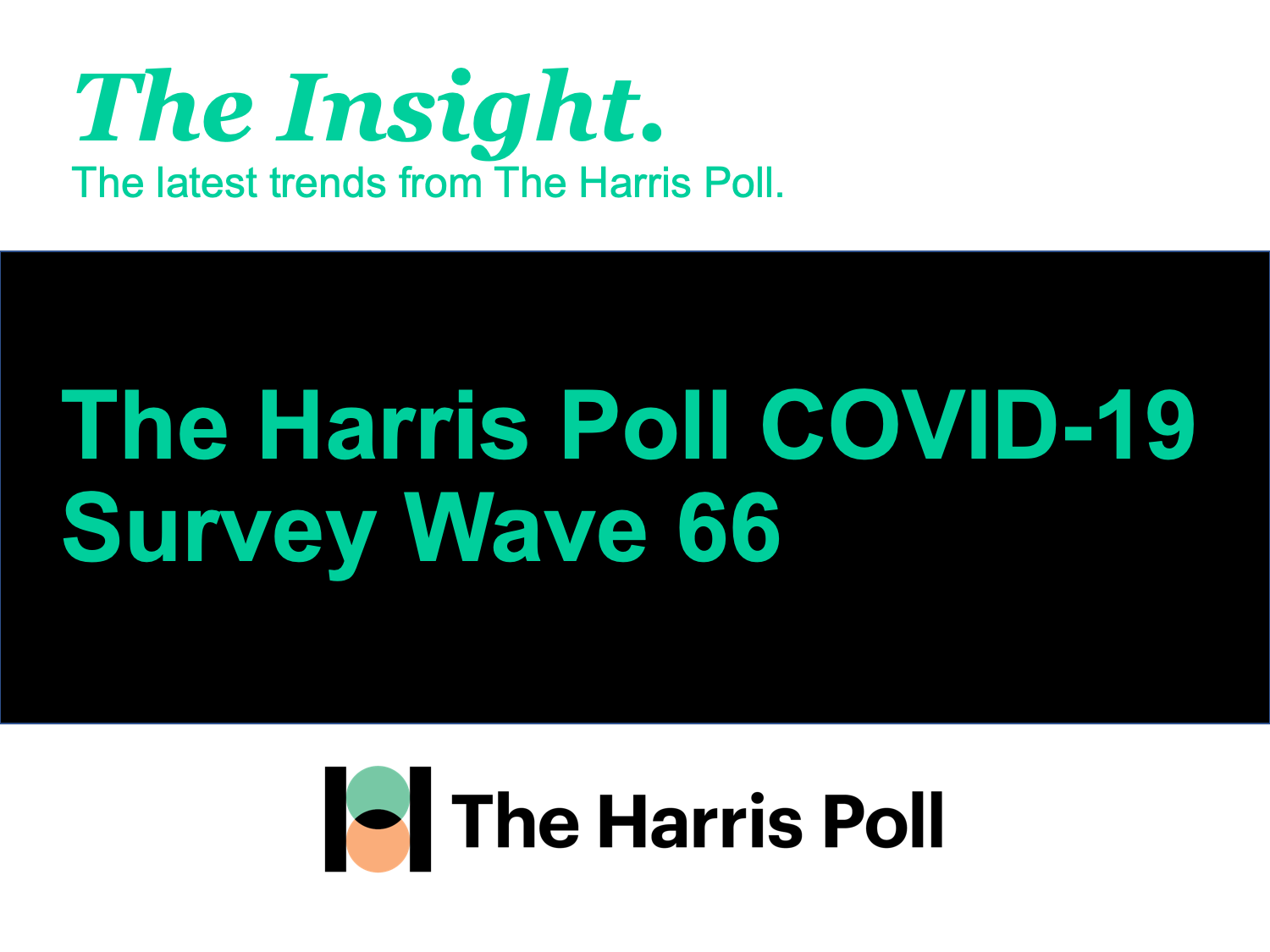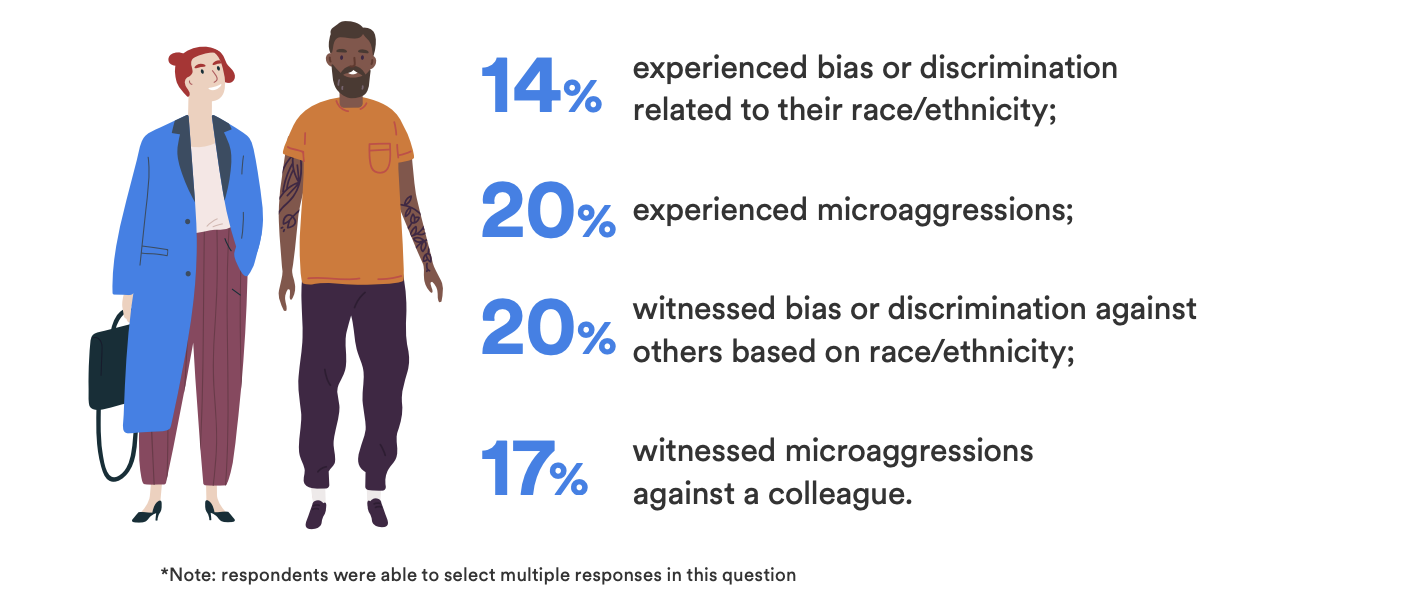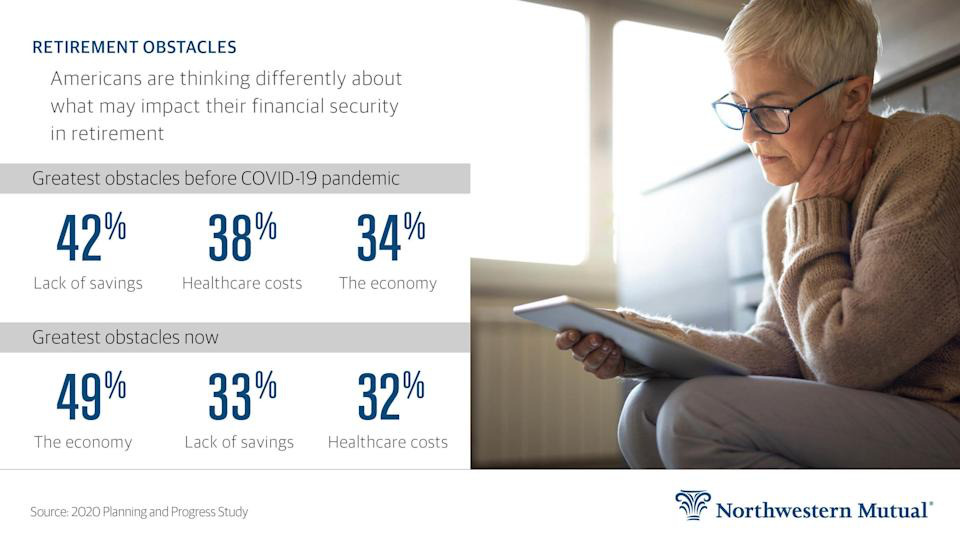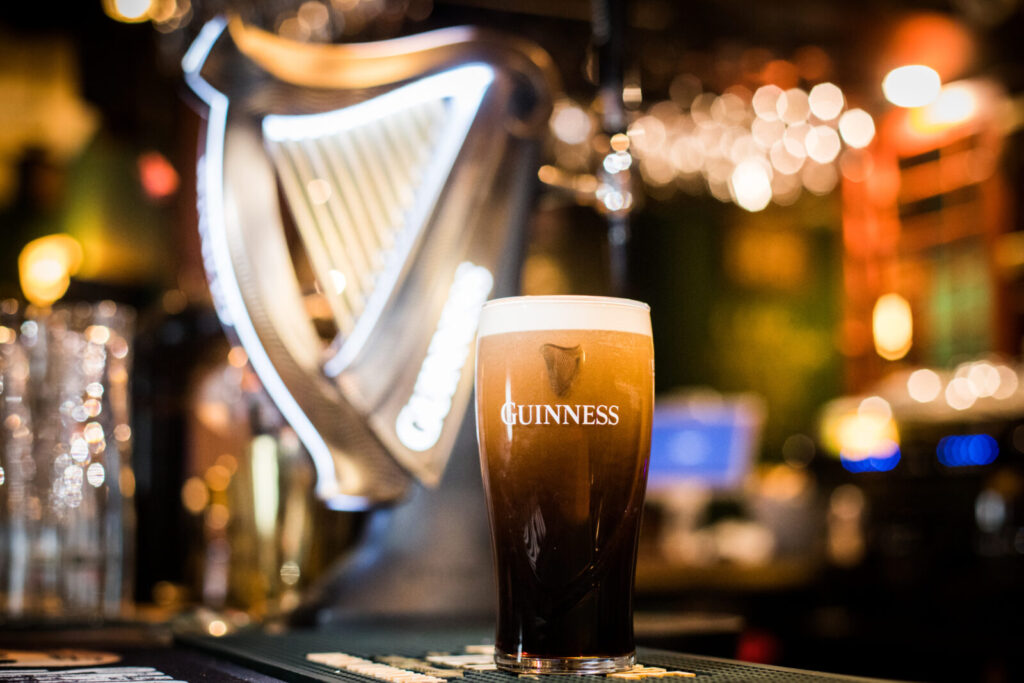Brief • 3 min Read

In The Harris Poll COVID-19 Tracker (Week 66) fielded May 26th to 28th, 2021 among 1,999 U.S. adults, we look at Americans’ hesitancy to go maskless indoors, how science prevailed in our 2021 Axios-Harris Poll ranking, climate change’s effect on Older Millennials’ money matters, what employees want from their jobs when it comes to social injustice, and the pandemic’s effect on Americans’ plans to retire.
As a public service, our team has curated key insights to help leaders navigate COVID-19. Full survey results, tables, and weekly summaries can be accessed for free at The Harris Poll COVID-19 Portal. We will continue to actively field on a regular cadence to track the shifts in sentiment and behaviors as the news and guidelines evolve.
Most Americans Are Still Hesitant to Go Maskless Indoors
Ahead of Memorial Day weekend, many states loosened mask wearing guidelines. We have been asking Americans how comfortable they are to shop indoors without a mask since the beginning of the pandemic and most say they are still hesitant to go without.
- While comfort levels are rising, only a little over one third (36%) are comfortable going shopping without a mask today (up from 25% on April 18th)
- Older people are more hesitant: Millennials and Gen X Americans are more willing to go maskless while shopping (44%, 43%) compared to Gen Z (17%) and Boomers (31%).
- What’s alarming is that those who will not get vaccinated are two times more likely to be comfortable to go shopping indoors without a mask (60%) compared to those who are already vaccinated (32%). This might explain why people are hesitant to go maskless, as the unvaccinated are most vulnerable to contracting and spreading COVID.
Takeaway: Although this elusive milestone signals a turning point, Americans are wary; the new mask guidance relies on an honor system trusting people will be honest about their vaccination status, which boils down to one unanswered question – will people do the right thing?
“A Good Year For Science” in Brand Reputations: Axios-Harris Poll
Americans’ trust in Moderna, Pfizer, Tesla, and SpaceX — some of the top-rated and most visible brands in the 2021 Axios-Harris Poll reputation ranking — show it’s been “a good year for science,” Harris Poll CEO John Gerzema said Wednesday at a virtual Axios event.
- “The extraordinary performance of pharma: we had Moderna on our list in the top 10 for the first time. We had Pfizer also in the top 10,” Gerzema noted in the virtual event. Moderna ranked 4th for Citizenship, while Pfizer ranked 3rd for Products & Services.
- He continues, “It was also a really good year for Elon Musk. Both his companies are in the top 10, both SpaceX and Tesla.” SpaceX ranked 1st for Vision among the 100 companies – and 2nd in Growth.
- Ending on a high note: “I think pointing to that idea that as COVID started to begin to recede in America, we started to kind of maybe frame our attention and other places around imagination and wonder.”
Takeaway: The dual visibility of pharmaceutical companies developing COVID-19 vaccines and companies working to build spacecraft and electric cars suggest Americans are looking to a post-pandemic future.
How Climate Change Is Impacting Millennials’ Money Decisions: CNBC-Harris Poll
This week in our partnership series with CNBC “Middle-Aged Millennials,” we take a look at the effect climate change has on financial concerns for Older Millennials.
- Three in four Older Millennials (76%) think climate change poses a serious threat to society, which may not be surprising given that this group has witnessed one ecological disaster after another.
- Millennials sparked the boom of sustainable investing throughout the 2010s, and now all generations want in. A report from investment research firm Morningstar found that (72%) of Americans expressed at least a moderate interest in sustainable investing, and the preference didn’t change significantly between generations.
- About one third of Millennials often or exclusively use investments that take ESG factors (environment, social, governance) into account – compared to just (19%) of Gen Z, (16%) Gen X, and (2%) of Boomers.
Takeaway: “All investors within the next couple of years will be considering, at the bare minimum, climate risks in their portfolios,” says Harlin Singh, head of sustainable investments at Citi Private Bank. It’s “a trend that’s here to stay.”
Most Americans Want Their Companies to Speak Out Against Social Injustice: Paradigm-Harris Poll
One year after the death of George Floyd, a new survey from DEI strategy firm Paradigm and Harris Poll and shared with CNBC finds that many Americans are not only more aware of racial injustice in the U.S., but they also want to see their own company take action against it. Here is what we found:
- Seven in ten (69%) Americans believe racial injustice is a problem in the U.S. and (60%) think racial injustice is a bigger problem now than they thought it was a year ago.
- Additionally, (68%) said they believe you should be able to discuss racial justice issues at work, and (54%) said they would even consider leaving an organization if it did not speak out directly against racial injustice.
- Nearly half (49%) say they witnessed or experienced racial bias or discrimination at their workplace in the last year and the majority (72%) of employed Americans want their employers to invest in creating/supporting an inclusive work environment.
- This past week, President Biden memorialized the victims of the Tulsa Race Massacre – marking the 100th anniversary of one of the worst acts of racial violence in U.S. history.
- Tips for businesses when it comes to fostering healthy conversations about racial injustice at work: hold space for various emotions, be open to addressing bias and discrimination at your company, and don’t ignore the conversations because they’re “too hard”.

Takeaway: “What we’ve seen is that following the murder of George Floyd and the protests and all of the kind of conversations that were happening, there was overall an increased level of consciousness of the ways in which racial injustice really permeate our society and our world,” social psychologist and Paradigm’s Managing Director Evelyn Carter says.
COVID-19 Blew Up Everyone’s Plans — Guess Which Generation Is Planning to Retire Even Earlier?: Northwestern Mutual-Harris Poll
The pandemic isn’t just prompting people to reschedule their weddings and other immediate events – it’s also causing many folks to rethink their retirement timeline, our new study with Northwestern mutual finds. Yahoo Finance writes more:
- One in five (20%) U.S. adults plan to retire later than they expected due to the economic impact of COVID-19.
- But, more than one in ten (15%) of Millennials said they are inspired to retire early due to COVID, compared to just (8%) of Gen Zers, (6%) of Gen Xers, and (4%) of Boomers.
- On the flipside, Gen Xers (25%) are the most likely to be postponing retirement because of the pandemic. Gen Z was close behind (20%), followed by Millennials (19%) and, lastly, Boomers at (14%).
- Millennials also lead the pack with the earliest average age at 61.3 years old. Boomers tack on an extra seven years on average, looking at 68.8 years old.
- Before the pandemic struck, working folks cited lack of savings (42%) as their biggest obstacle. Now, as the pandemic rages on, people feel most blocked by the economy (49%).

Takeaway: The feasibility of Millennials’ plans to retire early have frequently come under debate. There has been scrutiny over what mass early retirement would mean for the economy. Still, it adds up that an economic event deemed even more traumatic than the Great Recession would move Millennials to save even more aggressively in the hopes of retiring even earlier than previously planned.
Subscribe for more Insights
Subscribe to our newsletter for the latest trends in business, politics, culture, and more.
Download the Data
This survey was conducted online within the U.S. by The Harris Poll from May 26 to 28, among a nationally representative sample of 1,999 U.S. adults.
Download
Subscribe for more Insights
Subscribe to our newsletter for the latest trends in business, politics, culture, and more.
Download the Data
This survey was conducted online within the U.S. by The Harris Poll from May 26 to 28, among a nationally representative sample of 1,999 U.S. adults.
DownloadRelated Content








